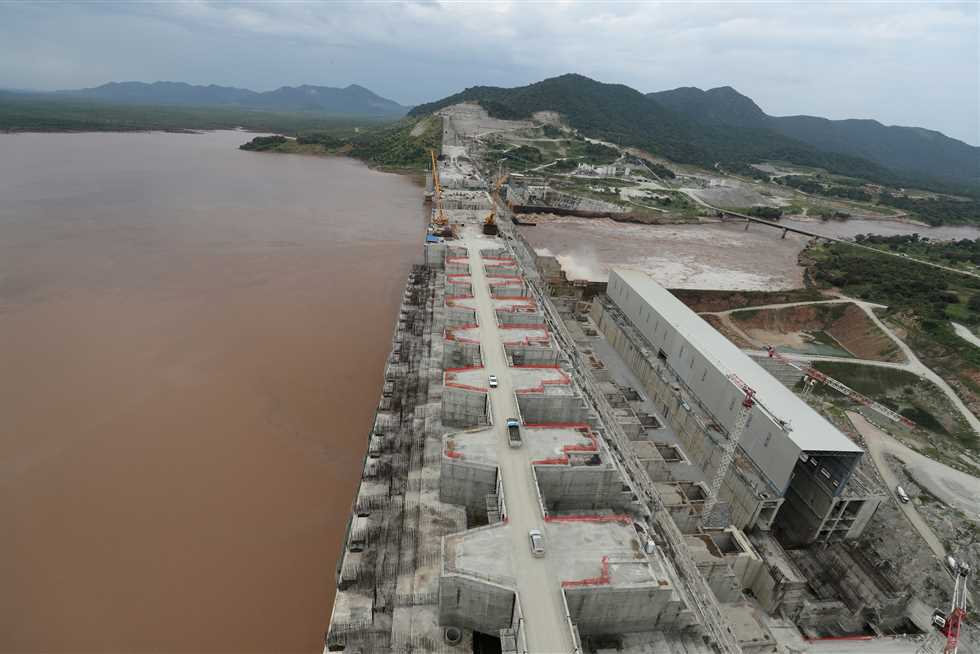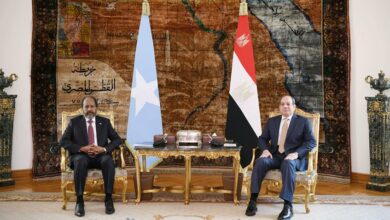After decades of mistrust and saber-rattling, the fall of Hosni Mubarak will improve Egypt's ties with Ethiopia and boost the chances of a new deal to share the Nile's waters.
The two most populous countries in Africa after Nigeria have been at loggerheads over the Nile's precious water for years, with Egypt unwilling to budge from colonial-era treaties dating back to 1929 that give it two-thirds the river's annual flow.
Ethiopia, however, is busy building a mega dam on its share of the river. Eighty-five percent of the Nile's water originates in Etiopia and it is exploiting the river to try and reduce chronic power shortages.
Before Mubarak resigned in February, Ethiopia and five other Nile Basin states had agreed a new treaty which would reduce Egypt's share of the waters and remove its veto over upstream projects which could slow the flow.
While Egypt and Ethiopia signed a cooperation agreement in 1993, relations have been at a low ebb since 1995 following an assassination attempt on Mubarak by Islamist gunmen during a visit to Addis Ababa.
Ethiopian Prime Minister Meles Zenawi has accused Egypt of supporting rebels to destabilize the country — a charge Egypt denies — and said it could never win a war over the Nile.
But the mood has now changed, and this rapprochement will be reinforced by the visit of Egyptian Prime Minister Essam Sharaf and a team of ministers to Addis Ababa this week. He is due to meet Meles on Saturday for talks.
"Any new government in Egypt, whatever the actors and ideology will be, will have to redefine from scratch its Nile policies, namely its foreign policies towards the neighbors," said Ana Cascao, a Nile expert at the Stockholm International Water Institute.
"There are already clear signs by the new authorities that they understand that Mubarak has failed badly to promote trust and confidence with the Nile neighbors — and that a new relationship must be built," she said.
Threatened by rising temperatures and a growing population, Egypt's water needs could exceed supply by as early as 2017, according to experts.
In one of the most apparent shifts in how Egyptian officials are handling the Nile Basin dispute, the government has reached out to researchers and non-governmental organizations to help frame Egyptian policies in Africa.
The new administration has also refrained from openly criticizing the terms of the new Nile treaty.
"Cooperation with Nile Basin countries is an imperative necessity and there is no alternative to it," the new Water Resources and Irrigation Minister Hussein el-Atfi said.
"There should be focus in the upcoming period on boosting the use of such resources to benefit all states in the basin."
Beside Ethiopia, Sharaf is also visiting Uganda on Thursday to attend President Yoweri Museveni's inauguration. His trip follows a charm offensive by a delegations made up of activists, former diplomats and politicians to both Uganda and Ethiopia.
The initial visits were successful to the extent Ethiopia said it would hold off ratifying the new Nile treaty until there was a new elected government in Egypt.
Sharaf's first foreign visit after being appointed was to neighboring Sudan, which had also objected to the new Nile treaty terms struck by the six upstream countries.
The countries Sharaf has chosen to visit first show he is following through on his pledge to make cooperation with Nile Basin states and Africa one of his main foreign policy goals. Under Mubarak, Europe was a favored destination for officials.
"When the system changed, it was natural for the new people to come in with a different vision," said Dia El-Din El Quosy, a former deputy minister of irrigation and former chairman of the National Water Research Centre.
Some Egyptians blame the current state of affairs on Mubarak's lack of engagement with Africa.
Egypt is the most populous Arab country, but its regional influence is seen to have faded after three decades of Mubarak's rule, during which its foreign policy and economic ties were aligned more with the United States and Europe.
"If we are talking benefits, our interests are not with Israel but with Africa, with whom we share resources," said Sally Moore, a member of the Egyptian Social Democratic Party, said during a visit to Ethiopia earlier this month.
"With him we've lost our status in Africa and Arabia. Before killing us, he killed our dignity," she said.
Though the tough rhetoric has been set aside for now, however, Egyptians are still wary of a treaty that does not ensure a majority stake on the river's flow.
"All of us know that the (water) share of every Egyptian is less than the global average. We are pushing to ensure that Egypt gets the same or more, but not less," said Hamdeen Sabahy, an Egyptian presidential candidate.
But at least the renewed dialogue between Egypt and the Nile Basin states is creating hope that some kind of consensus will emerge on how best to exploit the world's longest river.
"There is a new determination and a new thrust forward. This official visit will hopefully follow this same path," said Safwat Abdel-Dayem, secretary general of the Arab Water Council.
"There is so much more to gain from mutual cooperation. If Nile Basin states work together, we can truly push African development forward."



